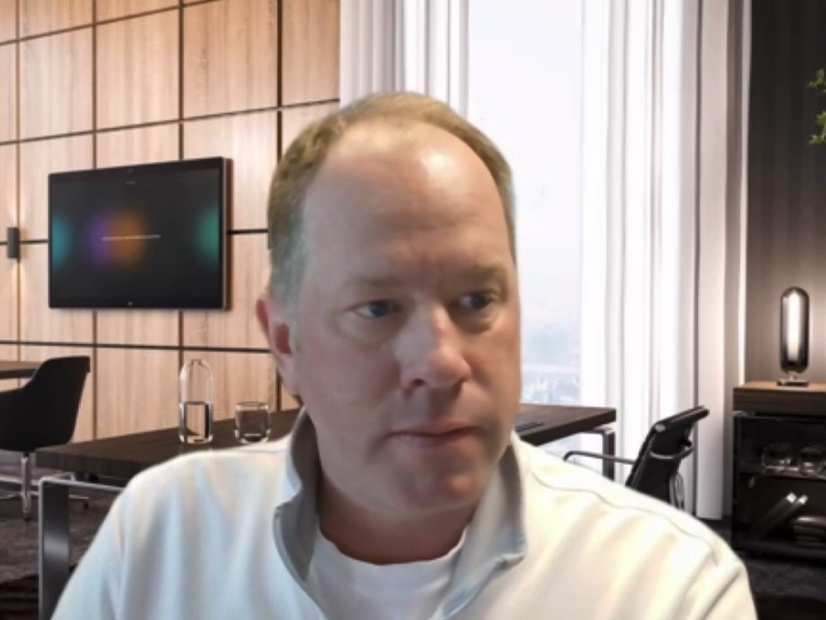NERC’s proposed standard setting generator ride-through requirements for inverter-based resources will go out soon for a formal ballot round the ERO hopes finally will see it gain the required support from industry.
Committee Chair Todd Bennett, of Associated Electric Cooperative, told members of the Standards Committee the revised PRC-029-1 (Frequency and voltage ride-through requirements for IBRs) was out for public comment, having been posted after the technical conference hosted by NERC on Sept. 5. (See NERC, Industry Discuss IBR Issues in Technical Conference.) The formal ballot round will begin Sept. 24 and end Sept. 30.
Bennett said in a Sept. 18 committee meeting that the conference “was received rather well” by ERO stakeholders, complimenting NERC staff for their fast work setting up the event on short notice. NERC’s Board of Trustees in August ordered the committee to hold the conference, invoking its special authority to bypass the normal standards development process for the first time to meet FERC’s November deadline for submitting ride-through standards. (See “Board Invokes Standards Authority to Meet IBR Deadline,” NERC Board of Trustees/MRC Briefs: Aug. 15, 2024.)
During the two-day conference, NERC staff presented on the background of the standard, while industry stakeholders took part in panels discussing their issues with the proposed standard and possible ways to address them. Amy Casuscelli of Xcel Energy said “it was really helpful to get to hear the technical experts in the room … weigh in on their different perspectives and different views.”
Casuscelli also praised the inclusion of original equipment manufacturers (OEMs) who could address the manufacturing challenges that might be posed by some requirements of the proposed standard. Trustee Sue Kelly, the board’s liaison to the Standards Committee, agreed this community was a valuable addition to the conference.
“I thought it was very powerful to have everybody all in the same room at the same time. The drafting team reps were able to say, ‘This is why we wrote what we wrote’; the OEMs … who are going to be crucially important to implementing anything were there to tell us what they thought they could and could not do; and we, in turn, were able to say to them, ‘Your equipment is becoming increasingly important, and you bear some responsibility in this as well,’” Kelly said.
Standards Actions Approved
The committee approved a handful of standards actions at the meeting, starting with a proposal to appoint supplemental members to the standard drafting team (SDT) for Project 2020-06 (Verifications of models and data for generators).
The project recently was assigned to satisfy Milestone 3 of FERC’s Order 901, which requires the ERO to submit standards addressing validation and verification of models for inverter-based resources by November 2025.
NERC Manager of Standards Development Jamie Calderon told members the ERO seeks to supplement the SDT to provide “the requisite experience to tackle” the added responsibilities of Order 901. The ERO solicited nominations from the industry and received nine; seven were recommended to the committee for approval. As usual, the candidates were not identified during the meeting except by number.
Calderon said one of the remaining nominees “did not respond to interview requests, and recommendations were not received” from their references; the other informed NERC they would prefer to join a different SDT. As a result, neither was recommended for approval.
The seven nominees were approved unanimously, although Robert Blohm of Keen Resources moved to add the second of the unrecommended nominees to the slate. He argued that four of the seven recommended candidates had Canadian backgrounds and adding so much Canadian representation to the team could make it regionally unbalanced. However, Blohm’s motion did not receive a second and did not advance.
Members also approved the addition of a single new candidate to the SDT for Project 2023-09 (Risk management for third-party cloud services). The committee approved the SDT’s current slate at its July meeting, but since that time, one of the members has stepped down because of workload concerns. They will be replaced by a candidate who was recommended by NERC staff at the July meeting but replaced with a different nominee by the committee.
Margo Caley of ISO-NE explained that both nominees are from the same sector, meaning there will be no change in sector representation on the SDT.
Finally, the committee authorized the posting of proposed reliability standard TOP-003-7 (Transmission operator and balancing authority data and information specification and collection) for a 45-day formal comment period, with ballot pools formed in the first 30 days and ballots conducted during the past 10 days.
TOP-003-7 (on page 14 of the agenda) was developed by the SDT for Project 2022-03 (Energy assurance with energy-constrained resources). The revisions to the existing standard will add near-term energy reliability assessment to the list of functions for which balancing authorities must provide data to entities that request it.




